Novel markers and therapeutic targets for autoimmune diseases and cancer
The laboratory is focused on translational research projects relating to cancer, autoimmune and infectious diseases.
Our activity is mainly related to the identification and validation of new protein markers for diagnosis, prognosis and prediction of response to therapies in the pathologies of interest. Furthermore, we are interested in the selection and characterization of new molecular targets for the development of innovative therapies.Finally, we are also very interested in the study of the immune response in various human diseases. Some of our main studies are described below.
Seronegative rheumatoid arthritis (ARTIDE Project).
Chronic inflammatory arthritis, such as rheumatoid arthritis (AR) and related forms (spondyloarthritis, juvenile chronic arthritis) are autoimmune diseases that affect 2% of the general population. They have a chronic course, with different aggressiveness. If not timely diagnosed and handled, they can damage to joint tissues and cause severe disabilities. Diagnosis is based on clinical evidence, imaging data and the recognition of biomarkers, including rheumatoid factor (RF) IgG-IgM-IgA, and anti-IgG citrullinated peptides (ACPA). However, at present there are not validated sensitive biomarkers to estimate treatment efficacy for a given patient. Moreover, a significant fraction of patients is negative for RF or ACPA (seronegative arthritis) making the diagnosis more difficult and delaying the pharmacological treatment. Objective of our study is the identification / validation of biomarkers able to fill the serological gap, to select potential therapeutic targets and offer new insights into the mechanisms underlying this pathology.
Bioemergencies (Ready Project)
READy aims to establish a regional network of excellence for the rapid response to bio-emergencies and has as its objectives the definition, design, development and production of new adaptable and modular diagnostic solutions for emerging diseases.
The significant increase in migratory flows and international travelers has contributed to the spread of viral and parasitic diseases in regions where they were previously been observed. Climate change and the proven predisposition of Mediterranean countries to the autochthonous transmission of Arbovirus (Dengue, Chikungunya and Zika) and parasitosis (Corsica 2014, Schistosoma) not endemic in Europe, indicate the need for new technologies to identify diseases once reductively defined “tropical “, facilitating the definition of the best therapies and limiting their diffusion and social impact.
READy integrates the discovery / design / production of bioreagents (antibodies and epitopes), kits and diagnostic tools for Trypanosoma cruzi (TC), Plasmodium SPP (PS), Schistosoma SPP (SC) and for the different serotypes of Arbovirus Dengue (DENV), Chikungunya (CHIKV) and Zika (ZIKV). The new tests are targeting asymptomatic subjects with parasites, symptomatic patients, screening for blood products and organ transplants.
COVID-19 (projects Mainstream and Co-immunity)
The Laboratory is very interested in studying the immune response to SARS-CoV-2 infection and vaccination against infection and disease caused by the virus, in healthy individuals and fragile patients. Through the integration of serological analyses, high content immunophenotyping and transcriptomic analyses we are identifying correlates of protection to SARS-CoV-2, with a focus on T and B lymphocytes. In this context, we are developing experimental and bioinformatic pipelines to deconvolute and track antigen-specific T and B cell responses, that can be translated to other pathological contexts. This will lead to new knowledge on SARS-CoV-2 infection and vaccination, and to the implementation of pipelines that can be applied to other emerging viruses and pathological contexts.
Novel targets for cancer immunotherapy
In oncologic patients, effective anti-tumor immune responses are suppressed by immunological pathways (immune checkpoints), cytokines and a subset of tumor infiltrating lymphocytes called T regulatory cells (Treg cells). Immune checkpoints inhibitors (e.g. anti-CTLA4, PD-1/PD-L1 monoclonal antibodies) able to unleash effective anti-tumor immune responses are emerging as breakthrough in the treatment of many cancers. However, approved monoclonal antibodies towards immune checkpoints often cause serious immune-related adverse events (irAEs) likely due to a general depression of the immune system. Although steroids can be used to reduce irAEs, the associated immune suppression can compromise therapy efficacy. We believe that irAEs could be overcome by a selective targeting of tumor-infiltrating T reg cells. Antibodies able to deplete this cell population should de-repress the local immune response in the tumor lesion, while maintaining safe therapeutic profiles.
In continuation with transcriptome studies so far conducted at INGM (Massimiliano Pagani and Sergio Abrignani), our group is interested in exploiting a gene signature associated to tumor infiltrating Tregs (De Simone M. et al., Immunity 2016) to select novel immune-modulators suitable for the generation of therapeutic monoclonal antibodies.
Projects
- Identification and validation of novel markers for seronegative rheumatoid arthritis
- Identification and validation of novel markers for liver autoimmune diseases
- Validation of a novel target for monoclonal antibody therapy of cancers
- Validation of novel targets over-expressed by tumor-infiltrating regulatory T cells suitable and for the development of therapeutic monoclonal antibodies
Team
| Nome / Name | Ruolo / Role | |
|---|---|---|
| Valeria Bevilacqua | Post Doc | bevilacqua@ingm.org |
| Serena Curti | Post Doc | curti@ingm.org |
| Andrea Gobbini | Researcher | gobbini@ingm.org |
| Andrea Perrotta | Post Doc | perrotta@ingm.org |
| Elisa Pesce | Senior Post Doc | pesce@ingm.org |
Publications
-
Omicron spike function and neutralizing activity elicited by a comprehensive panel of vaccines
Bowen J E, Addetia A, Dang Ha V, Stewart C, Brown J T, Sharkey W K, Sprouse K R, Walls A C, Mazzitelli I C, Logue J K, Franko N M, Czudnochowski N, Powell A E, Dellota E Jr, Ahmed K, Shariq Ansari A, Cameroni E, Gori A, Bandera A, Posavad C M, Dan J M, Zhang Z, Weiskopf D, Sette A, Shane Crotty S, Talat Iqba N, Corti D, Geffner J, Snell G, Grifantini R, Chu E Y, Veesler D
Science, 19 Jul 2022, First Release, DOI: 10.1126/science.abq0203 -
A Structurally Simple Vaccine Candidate Reduces Progression and Dissemination of Triple-Negative Breast Cancer
Amedei A, Asadzadeh F, Papi F, Vannucchi MG, Ferrucci V, Bermejo I A, Fragai M, Vieira De Almeida C, Cerofolini L, Giuntini S, Bombaci M, Pesce E, Niccolai E, Natali F, Guarini E, Gabel F, Traini C, Catarinicchia S, Ricci F, Orzalesi L, Berti F, Corzana F, Zollo M, Grifantini R and Nativi C.
iScience. 2020 Jun 26; 23(6): 101250. Published online 2020 Jun 6 -
Novel biomarkers for Primary Biliary Cholangitis to improve diagnosis and understand underlying regulatory mechanisms.
Bombaci M, Pesce E, Torri A, Carpi D, Crosti M, Lanzafame M, Cordiglieri C, Sinisi A, Moro M, Bernuzzi F, Gerussi A, Geginat J, Muratori L, Terracciano LM, Invernizzi P, Abrignani S, Grifantini R.
Liver Int. 2019 Apr 29. doi: 10.1111/liv.14128. [Epub ahead of print] -
Magnetically driven drug delivery systems improving targeted immunotherapy for colon-rectal cancer.
Grifantini R, Taranta M, Gherardini L, Naldi I, Parri M, Grandi A, Giannetti A, Tombelli S, Lucarini G, Ricotti L, Campagnoli S, De Camilli E, Pelosi G, Baldini F, Menciassi A, Viale G, Pileri P, Cinti C.
J Control Release (2018) pii: S0168-3659(18)30254-2 [Epub ahead of print] -
CombiROC: an interactive web tool for selecting accurate marker combinations of omics data.
Mazzara S, Rossi RL, Grifantini R, Donizetti S, Abrignani S, Bombaci M.
Sci Rep (2017) 7:45477 -
ERMP1, a novel potential oncogene involved in UPR and oxidative stress defense, is highly expressed in human cancer.
Grandi A, Santi A, Campagnoli S, Parri M, De Camilli E, Song C, Jin B, Lacombe A, Castori-Eppenberger S, Sarmientos P, Grandi G, Viale G, Terracciano L, Chiarugi P, Pileri P, Grifantini R.
Oncotarget (2016) 7:63596-63610 -
FAT1: a potential target for monoclonal antibody therapy in colon cancer.
Pileri P, Campagnoli S, Grandi A, Parri M, De Camilli E, Song C, Ganfini L, Lacombe A, Naldi I, Sarmientos P, Cinti C, Jin B, Grandi G, Viale G, Terracciano L, Grifantini R.
Br J Cancer (2016) 115:40-51 -
Negatively charged AuNP modified with monoclonal antibody against novel tumor antigen FAT1 for tumor targeting.
Fan L, Campagnoli S, Wu H, Grandi A, Parri M, De Camilli E, Grandi G, Viale G, Pileri P, Grifantini R, Song C, Jin B.
J Exp Clin Cancer Res (2015) 34:103 -
Angiopoietin-like 7, a novel pro-angiogenetic factor over-expressed in cancer.
Parri M, Pietrovito L, Grandi A, Campagnoli S, De Camilli E, Bianchini F, Marchio S, Bussolino F, Jin B, Sarmientos P, Grandi G, Viale G, Pileri P, Chiarugi P, Grifantini R.
Angiogenesis (2014) 17:881-96 -
Multi high-throughput approach for highly selective identification of vaccine candidates: the Group A Streptococcus case.
Bensi G, Mora M, Tuscano G, Biagini M, Chiarot E, Bombaci M, Capo S, Falugi F, Manetti AG, Donato P, Swennen E, Gallotta M, Garibaldi M, Pinto V, Chiappini N, Musser JM, Janulczyk R, Mariani M, Scarselli M, Telford JL, Grifantini R, Norais N, Margarit I, Grandi G.
Mol Cell Proteomics (2012) 11:M111 015693 -
Surface interactome in Streptococcus pyogenes.
Galeotti CL, Bove E, Pezzicoli A, Nogarotto R, Norais N, Pileri S, Lelli B, Falugi F, Balloni S, Tedde V, Chiarot E, Bombaci M, Soriani M, Bracci L, Grandi G, Grifantini R.
Mol Cell Proteomics (2012) 11:M111 015206 -
Approach to discover T- and B-cell antigens of intracellular pathogens applied to the design of Chlamydia trachomatis vaccines.
Finco O, Frigimelica E, Buricchi F, Petracca R, Galli G, Faenzi E, Meoni E, Bonci A, Agnusdei M, Nardelli F, Bartolini E, Scarselli M, Caproni E, Laera D, Zedda L, Skibinski D, Giovinazzi S, Bastone R, Ianni E, Cevenini R, Grandi G, Grifantini R.
Proc Natl Acad Sci U S A (2011) 108:9969-74 -
PerR confers phagocytic killing resistance and allows pharyngeal colonization by group A Streptococcus.
Gryllos I, Grifantini R, Colaprico A, Cary ME, Hakansson A, Carey DW, Suarez-Chavez M, Kalish LA, Mitchell PD, White GL, Wessels MR.
PLoS Pathog (2008) 4:e1000145
-
Identification of iron-activated and -repressed Fur-dependent genes by transcriptome analysis of Neisseria meningitidis group B.
Grifantini R, Sebastian S, Frigimelica E, Draghi M, Bartolini E, Muzzi A, Rappuoli R, Grandi G, Genco CA.
Proc Natl Acad Sci U S A (2003) 100:9542-7 -
Previously unrecognized vaccine candidates against group B meningococcus identified by DNA microarrays.
Grifantini R, Bartolini E, Muzzi A, Draghi M, Frigimelica E, Berger J, Ratti G, Petracca R, Galli G, Agnusdei M, Giuliani MM, Santini L, Brunelli B, Tettelin H, Rappuoli R, Randazzo F, Grandi G.
Nat Biotechnol (2002) 20:914-21







